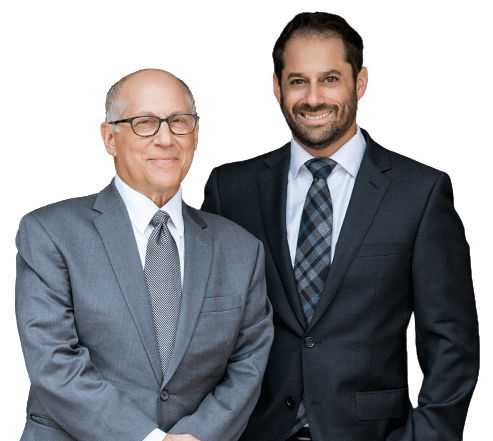
As the weather warms up, we’ll begin to see people driving with their windows down, grabbing their shorts out of the closet and, of course, pulling their motorcycles out of the garage. As a motorcycle rider, you are always watching out for drivers that don’t see you, pull out in front of you or are not paying attention altogether. However, sometimes the inevitable happens and accidents are unavoidable. So, what do you do if you’re injured in a motorcycle accident?
At the Scene
Assess any injuries
First and foremost, determine whether and how severely you are injured. Then, make sure to check any passengers you may have had on your bike or other parties involved. If there are injuries, immediately call 911.
Take photos of the scene
If you have a working camera or cell phone with you, make sure to take as many photos, at varying angles, as possible. While you should always file a police report at the time of any accident, it’s also important to document the state of all vehicles involved and their placement. It is of course best to call the police to the scene of the accident, and even if they take photos, it doesn’t hurt for you to take some as well.
Move out of the roadway, call 911 or the local police department
Especially if your accident is at night or in a high-traffic area, make sure to remove yourself from the roadway and out of danger from other vehicles. The last thing you need is for another accident to pile up behind you and further endanger others, or for you to be struck by oncoming vehicles that do not see you.Calling either 911 or the police is vital to the process. You’ll need to have a police report filed and other documentation of the accident so that you have an immediate and credible account of what occurred. By calling the police, it greatly helps reduce the possibility that the party at fault either later on denies fault or gives you false information about who they are or details about their insurance.
After the Accident
Contact your insurance agent
It’s important to let your insurance company know that you’ve been in an accident. However, ensure that you do not admit fault to anyone or give details about your injuries (if applicable) until you have a documented report from a medical professional. It is recommended that you do not speak with any insurance companies until after speaking with an attorney who is experienced in motorcycle injuries and accidents, and receiving advice on how to proceed and what to say or not to say to them.
Get your injuries assessed by a doctor
Even if you’re unsure if you’re injured, it’s always a good idea to get checked out by a medical professional to make sure. If you are injured, save copies of all the documented injuries you might have. Regardless of whether you have medical insurance or not, save all medical bills as a result of your injury.
Let your attorney do the talking
If you are contacted by the at-fault party’s insurance company or attorney, say as little as possible. If you do not have any attorney, contact one. If you do, they will counsel you on what you can and cannot say to make sure the opposing party does not lessen your compensation as a result.
Many individuals want to proceed as quickly as possible after a motor vehicle accident. It’s easy to minimize the situation after the fact to make the situation go away. However, we want to ensure that you maximize the compensation you deserve from lost wages, property damage, medical bills and any other damages that may result.
At Bentoff and Duber, we have experienced attorneys in motorcycle accidents. If you were injured in an accident, contact us today. We don’t get paid unless you win your case.
Injured during a motor vehicle accident? Check out these other blogs on motor vehicles and accidents:
- What happens when you’re in a car accident at work?
- What happens if you’re in a car accident with someone who’s uninsured?
- What to do after a car accident
- Do you need an OVI / DUI attorney?
About the author: Brandon Duber, a Partner with Bentoff & Duber Co., LPA, is a lawyer with proven experience in the courtroom and expertise in the areas of workers’ compensation, criminal defense, personal injury and medical malpractice law. He received his B.A. from Skidmore College in Saratoga Springs, NY and his J.D. from The Case Western Reserve University School of Law in Cleveland, OH.

